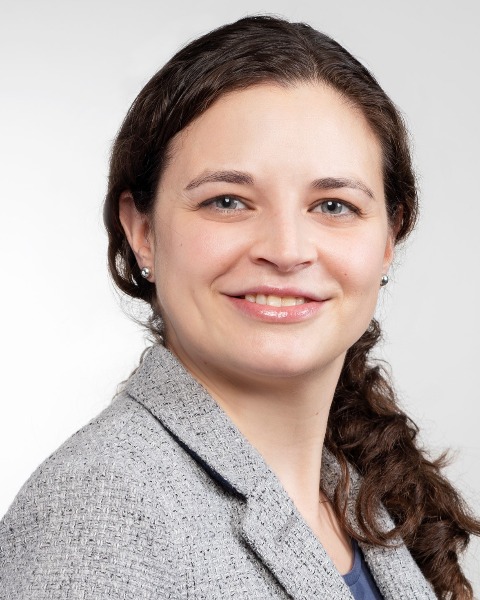Child / Adolescent - School-Related Issues
Feasibility and clinician knowledge and self-efficacy in using an adapted mental health teacher consultation model in a large urban school district
(PS11-C59) Feasibility and Clinician Knowledge and Self-efficacy in Using an Adapted Mental Health Teacher Consultation Model in a Large Urban School District
- ST
Shannon Testa, B.A.
Clinical Research Coordinator
Perelman School of Medicine at the University of Pennsylvania
Philadelphia, Pennsylvania - JA
John Armstrong, Ph.D.
Postdoctorate Fellow
Perelman School of Medicine at the University of Pennsylvania
Philadelphia, Pennsylvania - AW
Akeesha Washington, M.S.
Licensed Professional Counselor and School-Based Consultant
Perelman School of Medicine at the University of Pennsylvania
Philadelphia, Pennsylvania - MW
Michal Weiss, B.S.
Clinical Research Coordinator
Perelman School of Medicine at the University of Pennsylvania
Philadelphia, Pennsylvania - JW
Julie Worley, Ph.D.
Assistant Professor
Perelman School of Medicine at the University of Pennsylvania
Philadelphia, Pennsylvania - GL
Gwendolyn Lawson, Ph.D.
Assistant Professor
The Children’s Hospital of Philadelphia
Philadelphia, Pennsylvania - EC
Elise Cappella, Ph.D.
Vice Dean for Research, Professor
New York University
New York, New York - SH
Sophia Hwang, Ph.D.
Postdoctoral Scholar
University of California, Berkeley
Berkeley, California - CC
Carrie Comeau, MSW
Director, EPIC
Community Behavioral Health, Department of Behavioral Health and Intellectual disAbilities Services
Philadelphia, Pennsylvania - AV
Amber Lee Venti, M.A., LPC
Evidence-Based Practice Implementation Specialist
Community Behavioral Health, Department of Behavioral Health and Intellectual disAbilities Services, Philadelphia, PA
Philadelphia, Pennsylvania 
Courtney Wolk, Ph.D.
Assistant Professor
Perelman School of Medicine at the University of Pennsylvania
Philadelphia, Pennsylvania
Author(s)
Co-Author(s)
This poster presents initial program evaluation data collected during the implementation of an evidence-based teacher consultation model, Bridging Mental Health and Education in Urban Schools (BRIDGE; Cappella et al., 2011), in a large urban school district. BRIDGE is an intervention designed specifically for urban schools that embeds teacher consultation and coaching activities into mental health teams’ regular workflow. In a randomized controlled trial with public schools serving primarily Latinx and Black students in low-resource neighborhoods, BRIDGE increased effective classroom interactions, improved youth functioning, reduced peer victimization, and improved teacher-student relationships and academic self-concept.
We examined feasibility of implementation and clinicians’ perceived knowledge and self-efficacy with teacher consultation pre- and post-training within the context of the largest implementation of BRIDGE to date. Clinicians working in one large urban school district attended 16 hours of workshop training and then met with expert consultants for weekly, followed by monthly, consultation. Prior to training (pre-training) and following an 8-week weekly in-person individual consultation phase (post-training), clinicians reported on their knowledge, experience, and self-efficacy with teacher consultation. During consultation, clinicians completed weekly notes and engaged in structured interviews and observations to inform their implementation decision-making. Expert consultants then reviewed these data to guide ongoing consultation.
An initial cohort of 10 clinicians completed training and consultation in BRIDGE between November 2021 and January 2022. Training of additional cohorts are in progress; we anticipate we will have trained >40 clinicians by November 2022. Preliminary data from the first cohort indicate that all clinicians who completed training and scheduled an initial consultation continue to participate in ongoing consultation and report continued use of BRIDGE. Eighty-four individual consultation sessions occurred over 8 weeks with these 10 clinicians, which was greater than the 80 visits recommended; this provides evidence of feasibility.
BRIDGE focuses on effective classroom practices across two domains, emotional support and classroom organization, and includes a suite of interventions that can be implemented either class-wide or for a specific student. A review of consultation records indicated that the most common BRIDGE strategies utilized were token economies (used by 80% of clinicians), creating classroom structures and routines (70%), and specific labeled praise (80%). This indicates that clinicians utilized both class-wide and targeted strategies across the emotional support and classroom organization domains. Pre- and post-training knowledge and self-efficacy data has been collected; analyses are in progress.
This presentation will share ways the results of this program evaluation are informing future iterations of the training and implementation model and implications for other districts seeking to implement BRIDGE or similar models.

